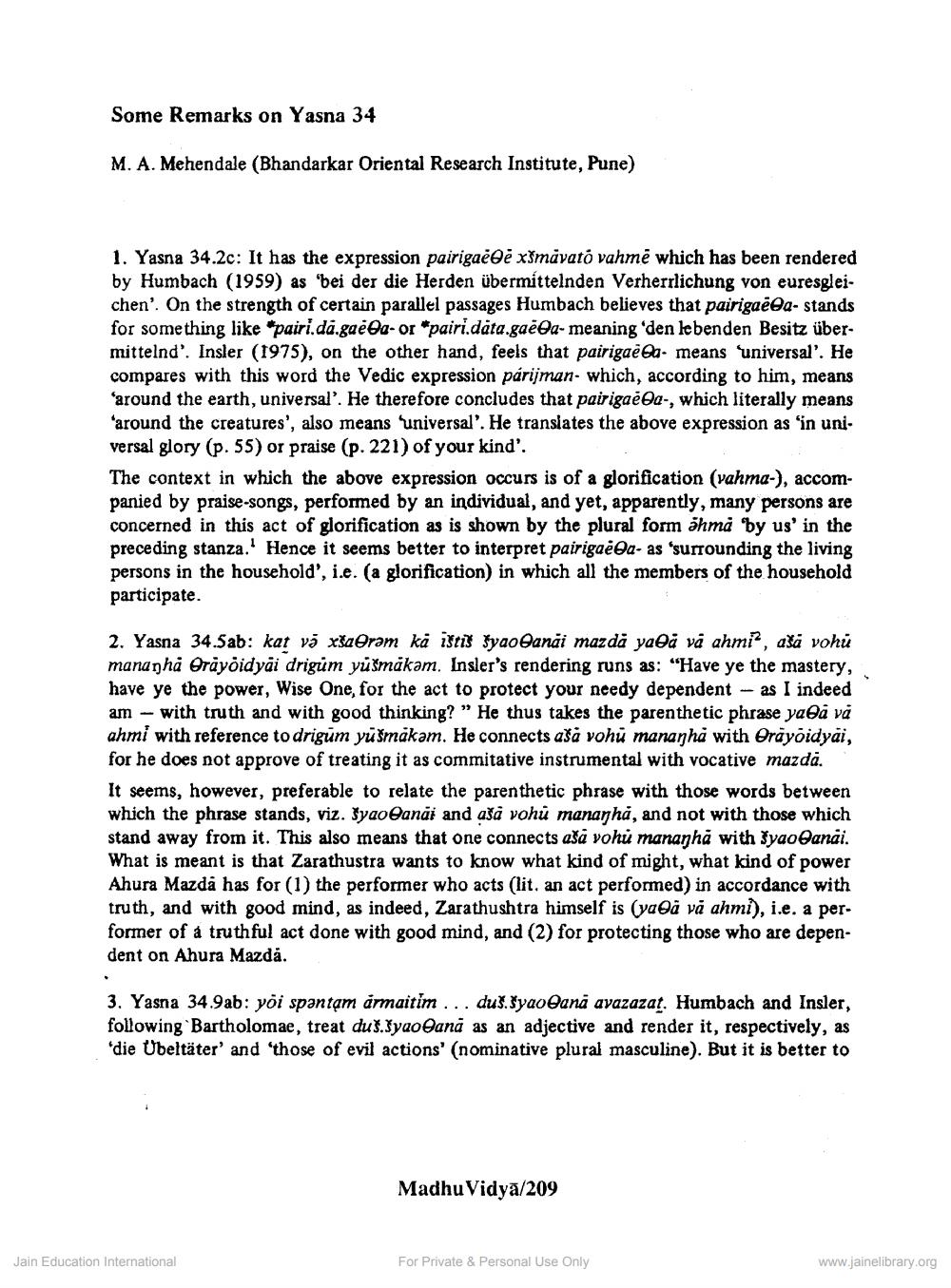________________
Some Remarks on Yasna 34
M. A. Mehendale (Bhandarkar Oriental Research Institute, Pune)
1. Yasna 34.2c: It has the expression pairigaeo e xšmavató vahme which has been rendered by Humbach (1959) as 'bei der die Herden übermittelnden Verherrlichung von euresgleichen'. On the strength of certain parallel passages Humbach believes that pairigacea- stands for something like pairi.da.gaela-or *pairi.data.gaeDa- meaning 'den lebenden Besitz übermittelnd'. Insler (1975), on the other hand, feels that pairigaeba. means universal'. He compares with this word the Vedic expression párijman- which, according to him, means faround the earth, universal'. He therefore concludes that pairigae0a-, which literally means around the creatures', also means universal'. He translates the above expression as 'in universal glory (p. 55) or praise (p. 221) of your kind'. The context in which the above expression occurs is of a glorification (vahma-), accompanied by praise-songs, performed by an individual, and yet, apparently, many persons are concerned in this act of glorification as is shown by the plural form ahmi by us' in the preceding stanza.' Hence it seems better to interpret pairigacOa- as 'surrounding the living persons in the household', i.e. (a glorification) in which all the members of the household participate
2. Yasna 34.Sab: kat və xsaram ka istiš Jyao Danai mazda yaea va ahmia, ašā vohu mananhà Orayoidyāi drigum yūšmakam. Insler's rendering runs as: "Have ye the mastery, have ye the power, Wise One, for the act to protect your needy dependent - as I indeed am - with truth and with good thinking?" He thus takes the parenthetic phrase yaba va ahmi with reference to drigum yūšmakam. He connects aša vohu mananhã with Orayoidyai, for he does not approve of treating it as commitative instrumental with vocative mazdā. It seems, however, preferable to relate the parenthetic phrase with those words between which the phrase stands, viz. Syaoeanai and aša vohu mananhà, and not with those which stand away from it. This also means that one connects ašā vohu mananhã with syao Danai. What is meant is that Zarathustra wants to know what kind of might, what kind of power Ahura Mazda has for (1) the performer who acts (lit. an act performed) in accordance with truth, and with good mind, as indeed, Zarathushtra himself is (yaoa vă ahmi), i.e. a performer of a truthful act done with good mind, and (2) for protecting those who are dependent on Ahura Mazda.
3. Yasna 34.9ab: yõi spəntam immaitim ... duš.SyaoBanā avazazat. Humbach and Insler, following Bartholomae, treat duš.Iyao Oanā as an adjective and render it, respectively, as 'die Übeltäter' and 'those of evil actions' (nominative plural masculine). But it is better to
Madhu Vidyā/209
Jain Education International
For Private & Personal Use Only
www.jainelibrary.org




